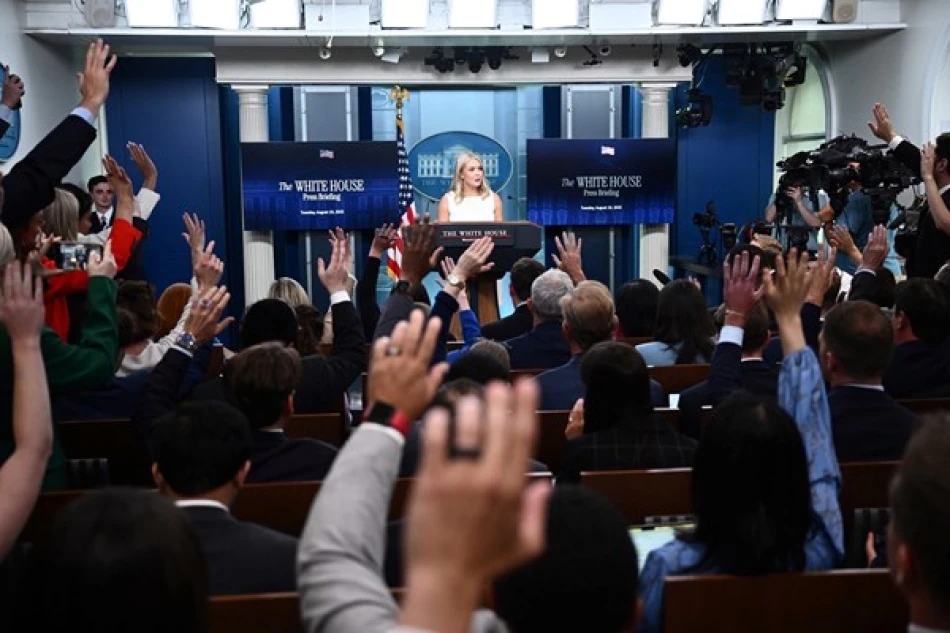
Washington Offers Security Assurances to Kyiv: A Path Forward for Ukraine's Stability
Trump Shifts Ukraine Strategy: US to Coordinate Security Guarantees Without Boots on Ground
The White House announced Tuesday that President Donald Trump has directed his national security team to work with European allies on coordinating security guarantees for Ukraine, marking a strategic pivot that emphasizes diplomatic coordination over direct military involvement. The move signals a potential framework for long-term Ukrainian security architecture while maintaining Trump's campaign promise to avoid American troop deployments.
The New American Approach
White House spokesperson Caroline Levitt clarified the administration's position, stating that Trump "categorically confirmed that American forces will not be deployed on the ground in Ukraine." However, she emphasized the United States' capacity to coordinate and potentially provide additional security guarantees to European allies supporting Ukraine.
This approach represents a departure from the previous administration's more direct military aid model, instead positioning the US as a facilitator of broader Western security arrangements. The strategy appears designed to maintain American influence in European security matters while reducing direct exposure to the conflict.
European Integration and Burden Sharing
Trump's directive to his national security team reflects a broader shift toward what defense analysts call "burden sharing" with European allies. This model has precedent in other regional security arrangements, such as the Abraham Accords framework in the Middle East, where the US played a coordinating role rather than providing direct military presence.
The timing suggests recognition that European nations, particularly those in NATO's eastern flank, are increasingly willing to take primary responsibility for regional security. Countries like Poland, the Baltic states, and Nordic nations have significantly increased defense spending since Russia's 2022 invasion.
Strategic Implications for Regional Security
The Coordination Model
By positioning itself as a coordinator rather than direct participant, the US could potentially structure security guarantees that involve multiple stakeholders. This might include intelligence sharing, advanced weapons systems provision, and financial backing for European-led security initiatives.
Such arrangements could prove more sustainable long-term than direct American military involvement, as they distribute costs and responsibilities across multiple allies while maintaining deterrent effect against Russian aggression.
Precedents and Comparisons
This approach mirrors successful security coordination models elsewhere. In the Asia-Pacific, the US coordinates security arrangements through frameworks like AUKUS and the Quad without maintaining large permanent deployments in every partner nation. Similarly, in the Gulf, American security guarantees often work through coordination with regional partners rather than massive troop presence.
Market and Economic Considerations
Defense contractors may see this shift as creating opportunities in coordination technologies, intelligence systems, and advanced weaponry that can be operated by European forces. The model potentially reduces long-term American fiscal commitments while maintaining industrial partnerships.
European defense stocks could benefit as the continent takes greater responsibility for its security architecture. This aligns with broader trends toward European strategic autonomy that have been developing since 2016.
Looking Forward
The success of this coordination approach will largely depend on European willingness to commit resources and the effectiveness of multilateral security arrangements. Unlike previous American security guarantees that relied heavily on US military presence, this model tests whether deterrence can be maintained through coordinated allied capabilities.
The framework could serve as a template for other regional security challenges, potentially reshaping how America approaches alliance management in an era of strategic competition with China and Russia.
Most Viewed News

 Layla Al Mansoori
Layla Al Mansoori






